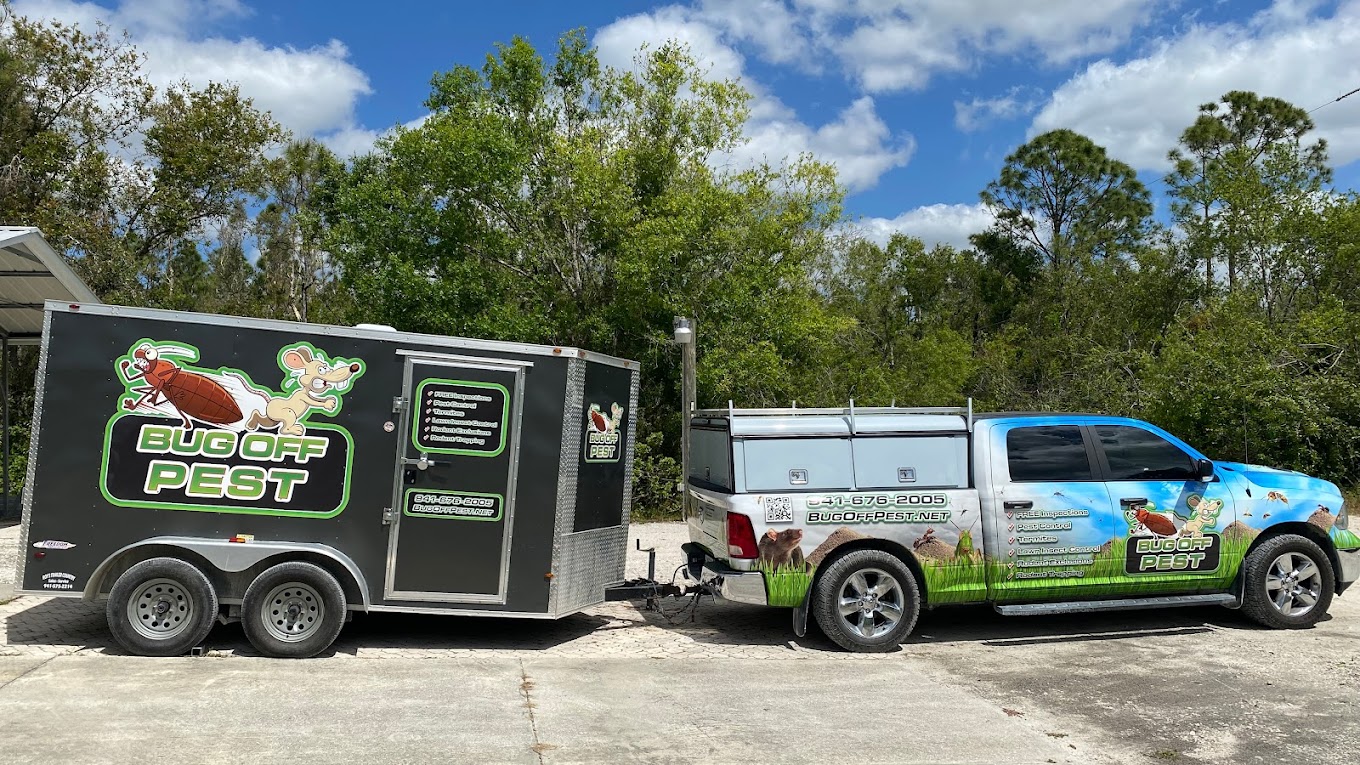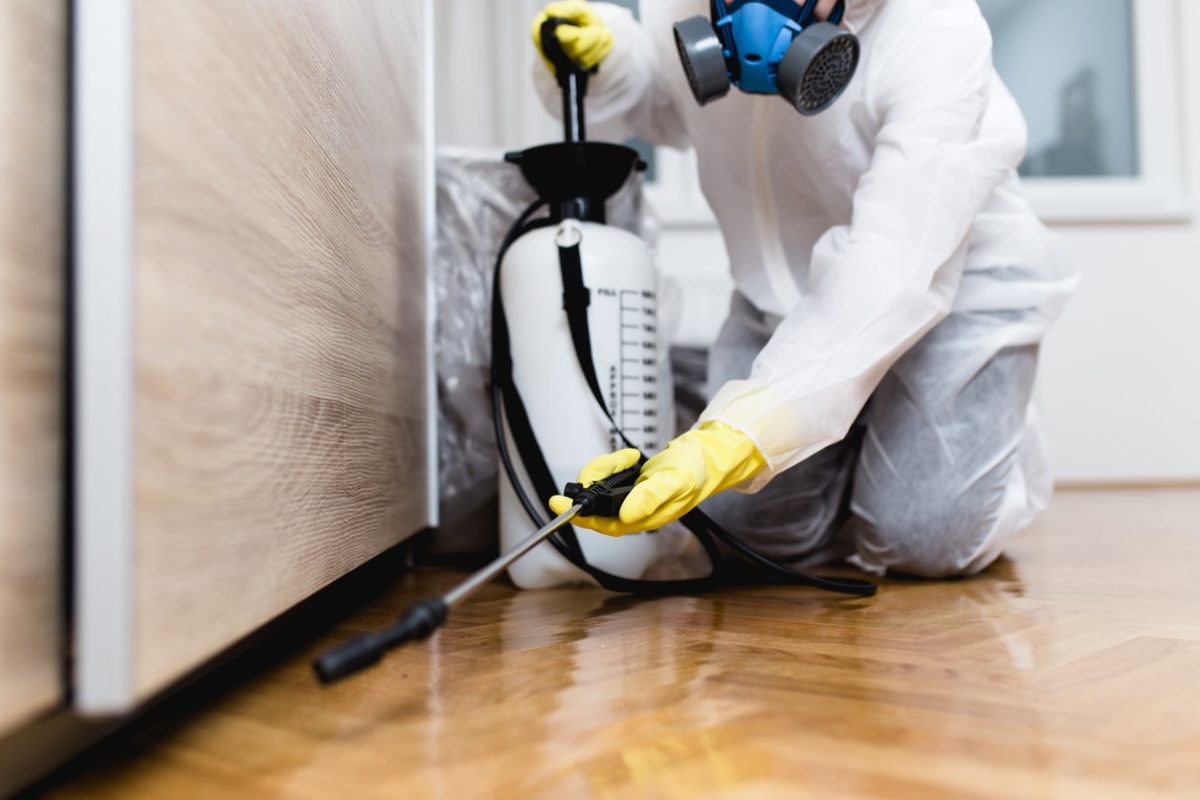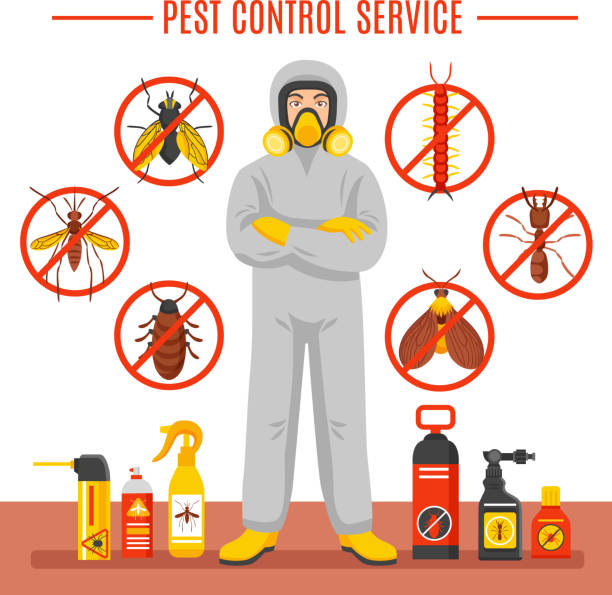Discovering Cutting-edge Methods and Products for Effective Insect Control
The landscape of insect control is developing, marked by the introduction of ingenious techniques and products designed to enhance effectiveness and sustainability. From smart catches furnished with advanced tracking systems to organic techniques that employ natural killers, these innovations offer a paradigm shift in how we approach pest administration. Environment-friendly chemical choices and pheromone interruption techniques offer targeted services that straighten with ecological stewardship. As the sector grapples with these developments, a closer evaluation discloses not just their implications however likewise the potential challenges that might develop in their implementation.
Smart Traps and Monitoring Solutions
How can modern technology enhance pest management? One considerable improvement is the advancement of clever traps and keeping an eye on systems, which offer real-time data and analytics for reliable bug control. These systems make use of sensing units and cordless modern technology to discover parasite activity, informing building supervisors and bug control professionals to invasions prior to they escalate.
Smart catches are outfitted with functions such as lure stations that attract parasites and capture them efficiently. These traps can be kept track of from another location, enabling prompt treatments and decreasing the demand for considerable chemical applications. Moreover, the combination of device knowing formulas enables these systems to separate between target insects and non-target species, improving the precision of bug control actions.
Additionally, the data accumulated from wise catches can be evaluated to recognize patterns in insect habits and ecological factors adding to invasions (Pest Control in Port Charlotte). This details is vital for establishing targeted pest administration techniques customized to particular atmospheres. By embracing clever traps and monitoring systems, bug control professionals can improve their functional efficiency and reduce the eco-friendly effect of insect monitoring, ultimately resulting in much safer and more sustainable techniques in the sector
Organic Insect Control Methods
Making use of all-natural killers and bloodsuckers, organic parasite control techniques offer an environmentally friendly alternative to chemical therapies. This technique involves the introduction or improvement of specific microorganisms that can normally control parasite populaces, therefore decreasing dependence on synthetic pesticides. Usual examples include making use of ladybugs to control aphid infestations and parasitic wasps to target caterpillars.

Biological control can be categorized into 3 main approaches: timeless, augmentative, and conservation. Classical biological control involves importing all-natural enemies from the pest's native habitat, while augmentative control includes boosting the population of existing all-natural enemies via launches. Preservation approaches focus on producing conditions that sustain these helpful microorganisms in the ecological community.
The effectiveness of biological bug control rests on comprehending the complicated interactions within communities. It usually requires a comprehensive analysis of bug dynamics and the life cycles of both the bugs and their natural opponents. While organic methods may not give immediate outcomes like chemical options, they add to long-lasting parasite administration and ecological community wellness. As recognition of ecological issues expands, organic insect control methods are progressively acknowledged for their sustainable duty in incorporated bug administration programs.
Eco-Friendly Chemical Alternatives
Environment-friendly chemical alternatives provide a sensible service for bug management that minimizes environmental influence while properly regulating bug populations. These choices are acquired from all-natural sources and are meticulously formulated to target particular insects without hurting advantageous organisms, making them a crucial part of sustainable insect control approaches.
Amongst one of the most efficient eco-friendly alternatives are plant-based insecticides, such as neem oil and pyrethrin, which are stemmed from the seeds and blossoms of numerous plants. These compounds interfere with the life cycles of insects, decreasing their populaces without the harmful results connected with traditional pesticides - Pest Control in find this Port Charlotte. Additionally, necessary oils like pepper mint and clove oil exhibit repellent properties, even more enhancing their utility in bug management

Moreover, environment-friendly chemical alternatives frequently damage down a lot more swiftly in the setting, lowering the danger of soil and water contamination. This particular aligns with the raising consumer need for sustainable methods in agriculture and city parasite control. As research study remains to breakthrough, the development of ingenious environmentally friendly formulations will further improve efficiency and expand application locations, making it possible for pest management professionals to embrace greener, much more accountable approaches in their methods while safeguarding human health and the setting.
Pheromone Disruption Techniques
One more ingenious approach in sustainable bug management is the use of pheromone disruption strategies. These techniques exploit the natural chemical signals, or scents, that insects make use of for interaction, specifically in breeding habits. By disrupting these signals, bug populaces can be effectively managed without considering dangerous chemicals.
Scent look at this now traps are generally employed in this approach. Over time, this can lead to a substantial decline in insect populaces.

Integrated Pest Monitoring Techniques
Efficient bug control often calls for a comprehensive strategy, and Integrated Parasite Monitoring (IPM) strategies provide a framework for achieving this objective. IPM incorporates various monitoring methods to minimize bug populations while decreasing dependence on chemical pesticides. This multifaceted strategy starts with thorough monitoring and recognition of pests, allowing for targeted treatments based on specific parasite stress.
Social methods, such as crop turning and sanitation, play a vital function in preventing insect establishment. Biological controls, consisting of all-natural killers and parasitoids, are used to maintain parasite populaces at manageable levels. When essential, careful chemical treatments are applied, highlighting lower toxicity to non-target types and the environment.
By utilizing this holistic approach, IPM not just boosts insect control effectiveness yet likewise contributes to lasting ecological balance. Eventually, Integrated Insect Management stands for a forward-thinking service that lines more tips here up agricultural efficiency with ecological stewardship, making it essential in contemporary insect control methods.

Verdict
In conclusion, the combination of cutting-edge techniques and items for reliable bug control stands for a considerable innovation in lasting bug administration. Smart catches and monitoring systems, biological pest control approaches, green chemical choices, and scent disturbance strategies jointly boost the effectiveness of insect administration approaches.